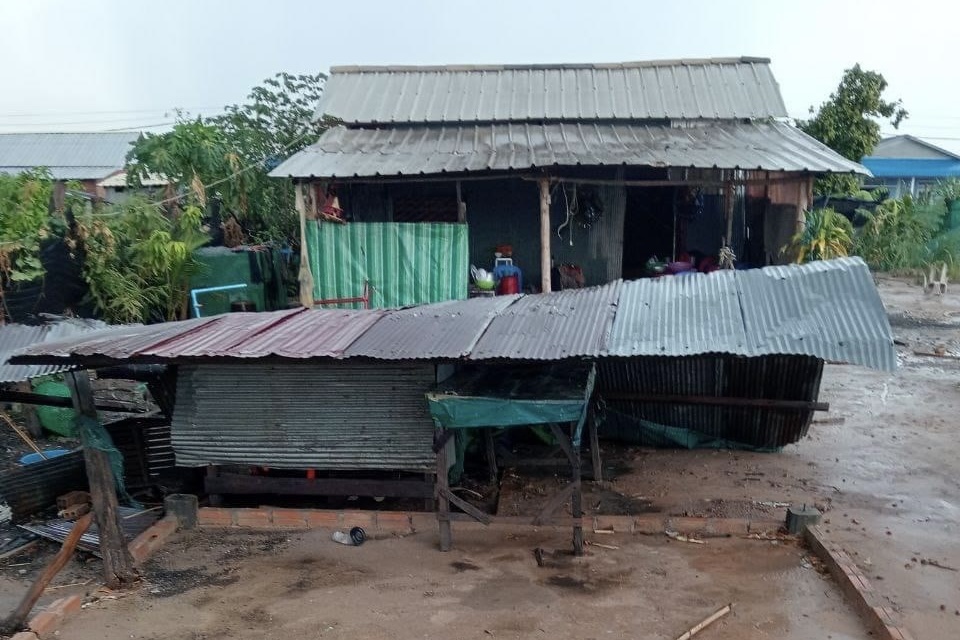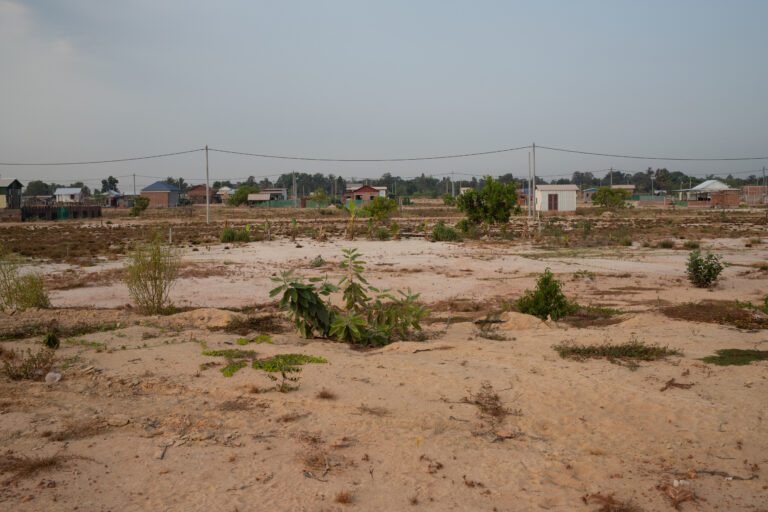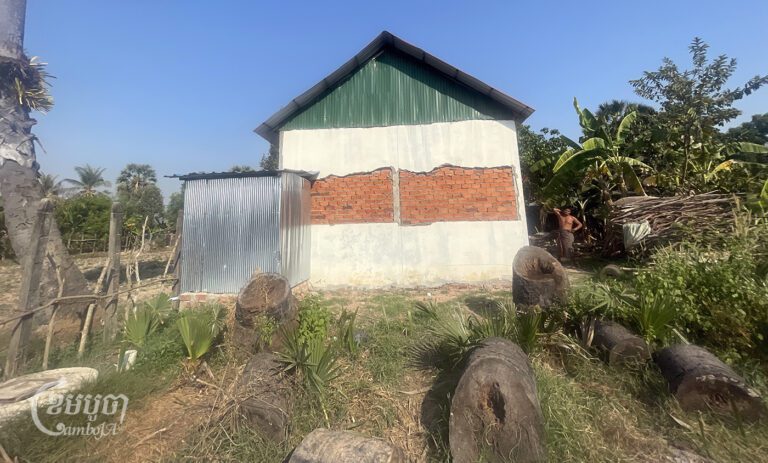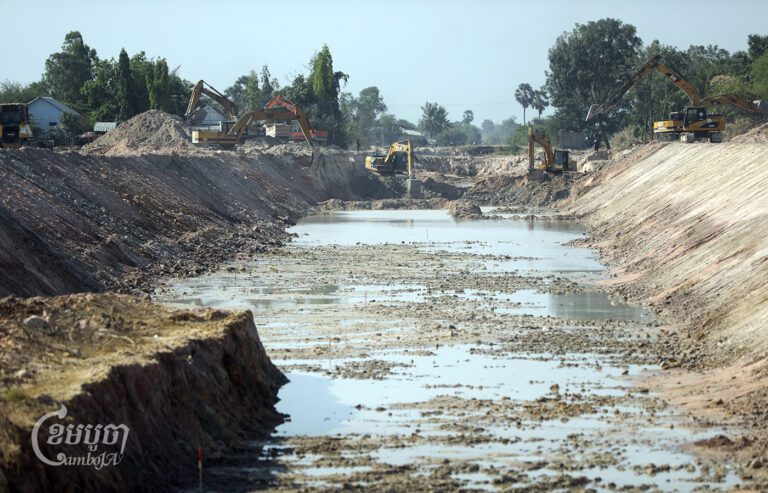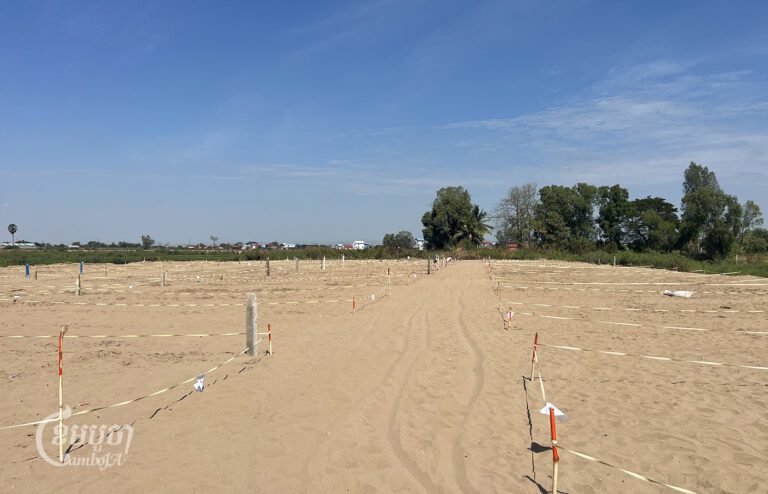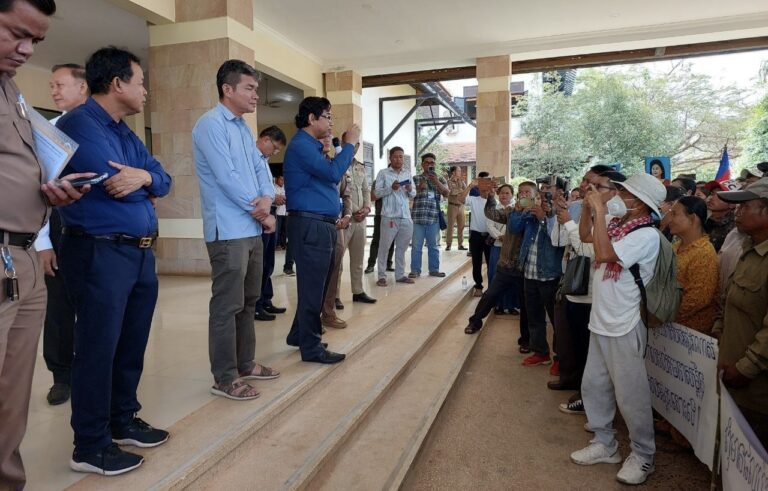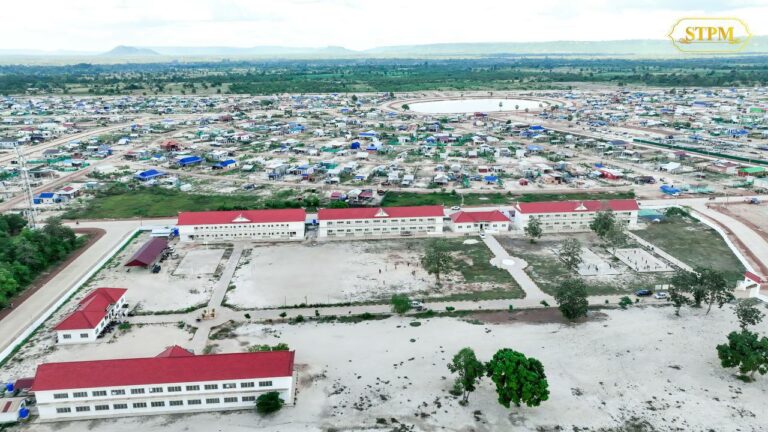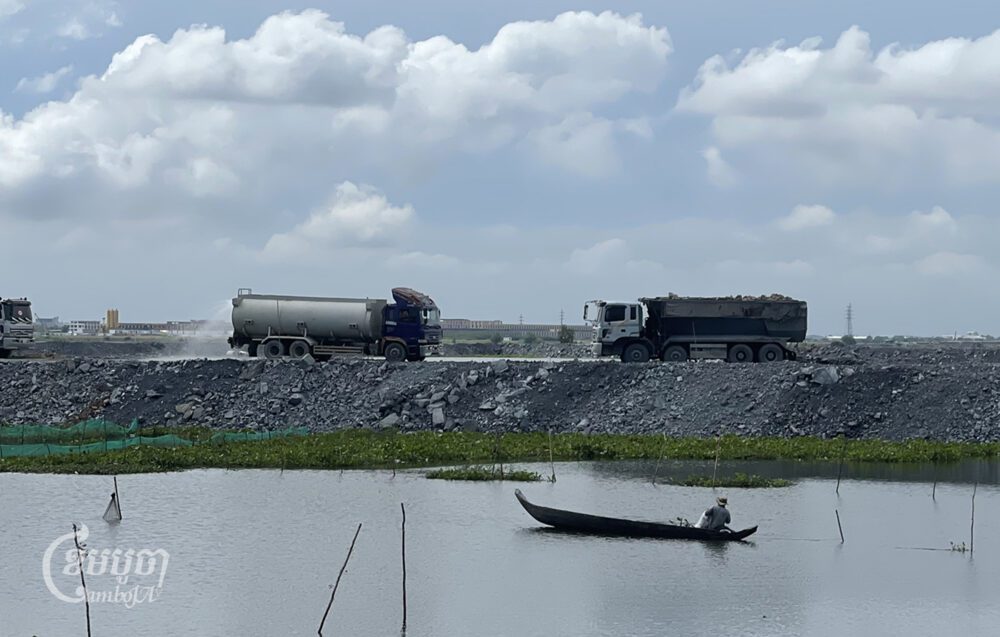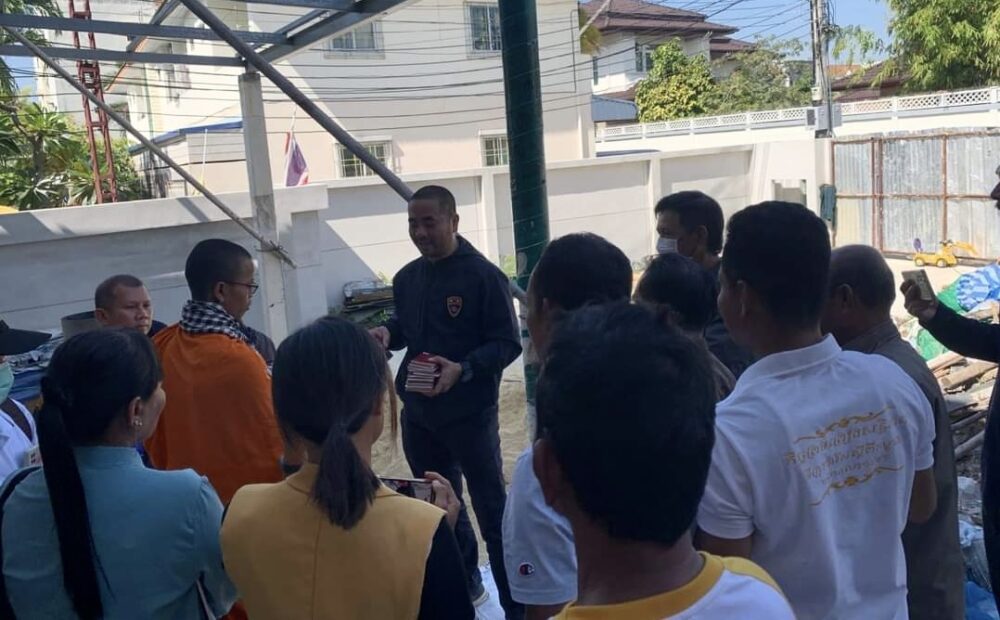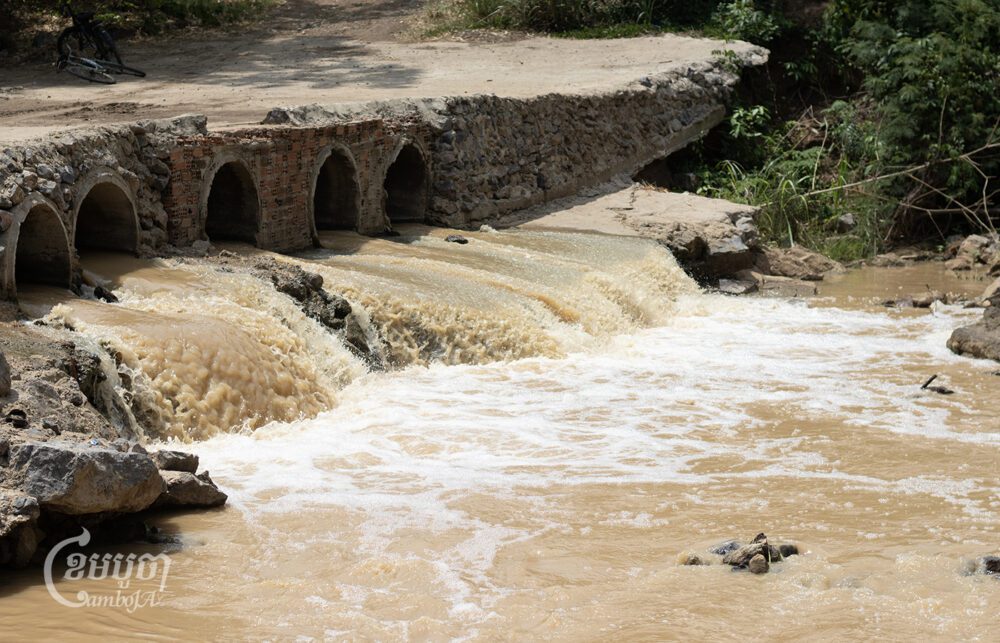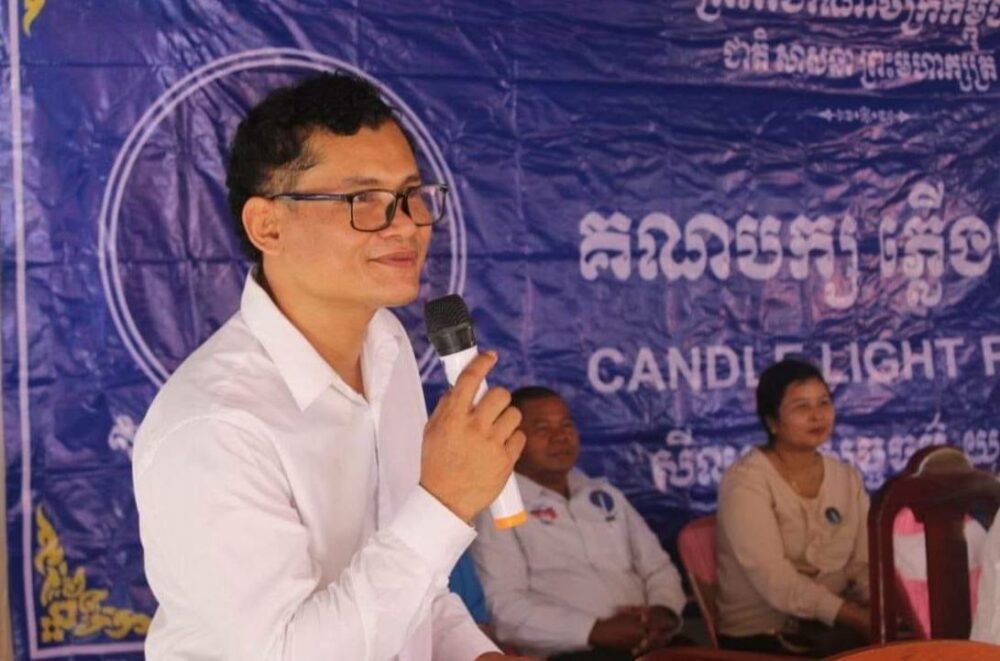Dozens of houses in Run Ta Ek, belonging to people who were evicted from Angkor Wat area, were damaged due to heavy rain and strong winds on Monday.
Siem Reap provincial administration Ly Vannak said some 69 houses were affected, with 64 roofs blown off and five houses razed to the ground. Some 4,000 houses are located in Run Ta Ek commune.
“Had they been able to afford strong [building] material, this problem could’ve been avoided,” Vannak explained, adding that the weak house structures meant that they were prone to damage during extreme weather conditions.
In order to protect the houses from strong winds, he urged the residents to plant trees. Vannak said seedlings were provided by the Department of Environment and Department of Agriculture.
Prak Savin, 46, said her zinc roof was damaged and the front structure of the house collapsed during the Monday evening storm.
“It is just the beginning of the rainy season and [my house] is already damaged like this. What is going to happen when it rains more?”, Savin asked.
“I am very concerned when the winds are strong because we don’t have any tall trees or forests surrounding this area,” Savin said.
Asked to comment on Vannak’s suggestion that residents build a strong structure, she replied, “We’re not able to build a strong structure as we don’t have enough money.”
She is facing financial constraints after building her wooden house and zinc roofing, having taken out a private loan of $3,500. She is now paying about $100 monthly for her loan using the money she gets from the ID Poor program, which is about 470,000 riel (approximately $115).
“I am upset that I don’t know how to earn more money,” she said. “I don’t see the authorities coming to offer assistance now as I don’t have enough [money] to fix the house,” Savin said.
Last July, the residents experienced flooding but Savin is not much worried about that this time because a drainage system is built by the authorities.

Another resident, Ream Eang, shared a similar story where strong winds damaged her toilet. “It was completely damaged but my house wasn’t impacted. Some parts of the house are strong,” she said. But her house is only partially built because she ran out of money halfway.
Like Savin, Eang too is afraid that strong winds would damage her house as there are no trees to protect them. “Of course we want to build a stronger structure but don’t have the money,” she said.
The residents who relocated to Run Ta Ek have previously protested about the lack of arable farmland and insufficient compensation by the government’s social security program, ID Poor.
Families have faced displacement as part of an ongoing effort to relocate people living around Angkor Wat – a UNESCO World Heritage Site – which officials claim is environmentally-sensitive and could jeopardize its status.
Cambodian authorities have maintained that the relocations are “voluntary”, although investigations by CamboJA showed that they were in actual fact forced.
A government report on Angkor conservation, which was sent to UNESCO (United Nations Educational, Scientific and Cultural Organization) World Heritage Center in December 2022, characterized the resettlement areas as “equipped” and able to receive families in “decent and safe conditions.”
NGO rights group Licadho supervisor In Kongchit called on relevant authorities to provide some financial support for the residents to fix their damaged houses.
“The authorities should provide some aid because they are facing livelihood problems in Run Ta Ek, making it difficult for them to earn income,” he said, adding that he has noticed that no help has been provided by the authorities.
He pointed out that some residents, who have better living conditions can build concrete constructions but those who are poor cannot afford that, and continue being impacted by natural disasters.
Some residents have built their houses using zinc only due to financial constraints, as they struggle to sustain a daily living after relocating from the Angkor Wat area.
Kongchit said Run Ta Ek relocation site was easily impacted by natural disasters as there are no tall trees, and crops are not big enough to protect the houses from rain and strong winds.
“The crops they planted are not large – only mangoes – which have grown to the height of the roof, about three meters from the ground. So, it cannot be a barrier to the wind when there are strong winds,” he said.
Run Ta Ek commune chief Chhuon Im could not be reached for comment.


